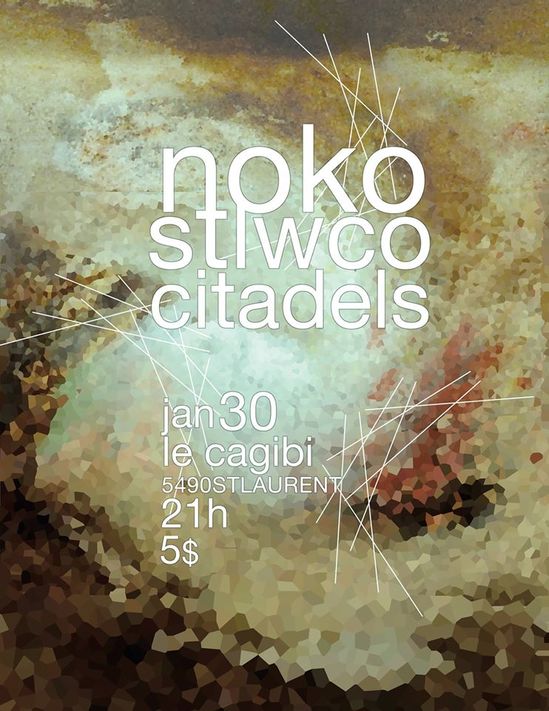 The Poster for the upcoming Noko / STLWCO / Citadels show at Le Cagibi on January 30th. (Photo: Facebook)
The Poster for the upcoming Noko / STLWCO / Citadels show at Le Cagibi on January 30th. (Photo: Facebook)
Montreal is home to a very lively music scene, with local bands of every genre playing almost every night at different venues. The process of booking a show in Montreal can vary greatly depending on the type of show, type of band, or the type of venue you're looking for. Sometimes it's as easy as telling your friend that your three-piece rock band will open for his experimental post-jazz duo in his girlfriend's loft space, and sometimes it's a hellishly long process of time management and neverending emails, but following these steps will have you playing your own shows before you know it!
PHASE ONE: THINK
PHASE TWO: PREPARE
PHASE THREE: CONTACT
PHASE FOUR: PREPARE SOME MORE
PHASE FIVE: DO IT
Photos taken from Flickr in accordance with creative commons licensing, creativecommons.org.
Leave a comment